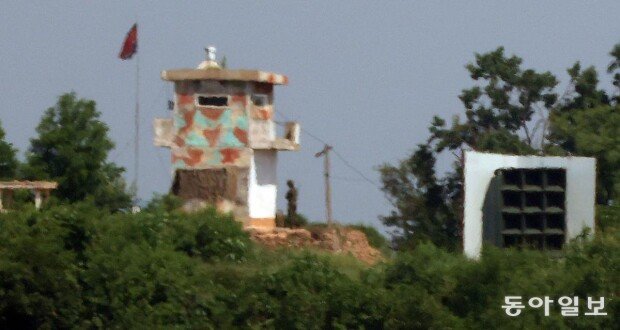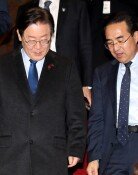North and South Korea halt border propaganda broadcasts
North and South Korea halt border propaganda broadcasts
Posted June. 13, 2025 07:16,
Updated June. 13, 2025 07:16

North Korea stopped its loudspeaker broadcasts toward the South on Wednesday, a day after South Korea suspended its own propaganda messages. President Lee Jae-myung called the move a step toward ending “unproductive hostilities” and vowed to revive dialogue and cooperation between the two Koreas.
The Joint Chiefs of Staff confirmed that no North Korean broadcasts were detected anywhere along the border on Wednesday. The transmissions are believed to have stopped around midnight, roughly 10 hours after South Korea switched off its speakers. It was the first time in about a year that Pyongyang halted the broadcasts it had launched after the Yoon Suk Yeol administration resumed anti-North messaging in response to trash-carrying balloons sent from the North.
Unlike South Korea’s broadcasts, which included news, music, and weather reports, North Korea transmitted bizarre and unsettling sounds, such as metal grinding and wailing, earning the nickname “ghost sounds.” While South Korea broadcast daily from 6 a.m. to 10 p.m. with scheduled breaks, the North’s broadcasts were irregular and continued through the night, targeting areas including Ganghwa Island, home to densely populated civilian communities. Many residents had complained of psychological distress.
A Unification Ministry official said North Korea’s move "helped ease the suffering of residents in border areas" and could become "a meaningful step toward reducing military tensions and restoring mutual trust."
Still, caution prevails inside the government. “It is too soon to tell whether North Korea will continue with de-escalation measures,” the official said, adding that Pyongyang had not dismantled its broadcast equipment, seen as a signal it could resume transmissions at any moment. At the end of 2023, North Korean leader Kim Jong Un declared South Korea an “enemy state,” unilaterally cutting ties and laying landmines inside the Demilitarized Zone. Given that context, officials and analysts are wary of reading too much into this week's developments.
In a speech delivered by senior presidential secretary Woo Sang-ho at a ceremony marking the 25th anniversary of the June 15 inter-Korean summit, President Lee said the pledges made that day “remain a historic lesson we must not forget amid today’s division, tension, and mistrust.” He vowed to work swiftly to restore broken communication channels between the two sides.
Some observers say the Lee administration may move to reinstate parts of the Sept. 19 inter-Korean military agreement, one of his campaign pledges. Specifically, it could suspend artillery drills within 5 kilometers of the Military Demarcation Line and on the northwestern border islands, areas previously designated as no-hostility zones. However, a military official said drills scheduled for mid and late June in those areas will go ahead as planned. The government is expected to proceed with caution, closely watching the North for further moves amid ongoing concerns about missile provocations.
Hyo-Ju Son hjson@donga.com







